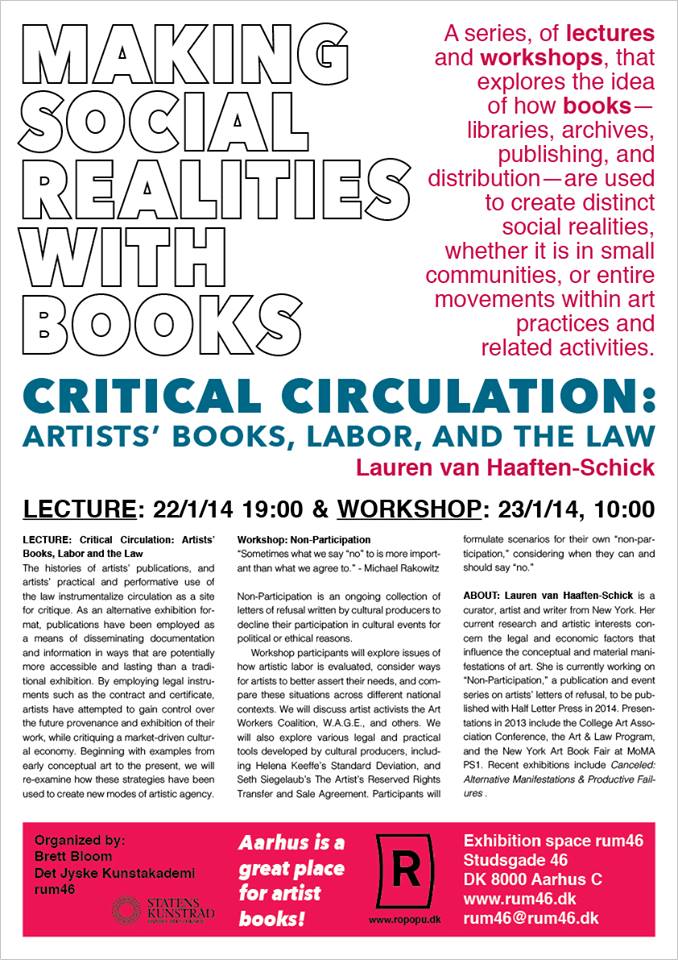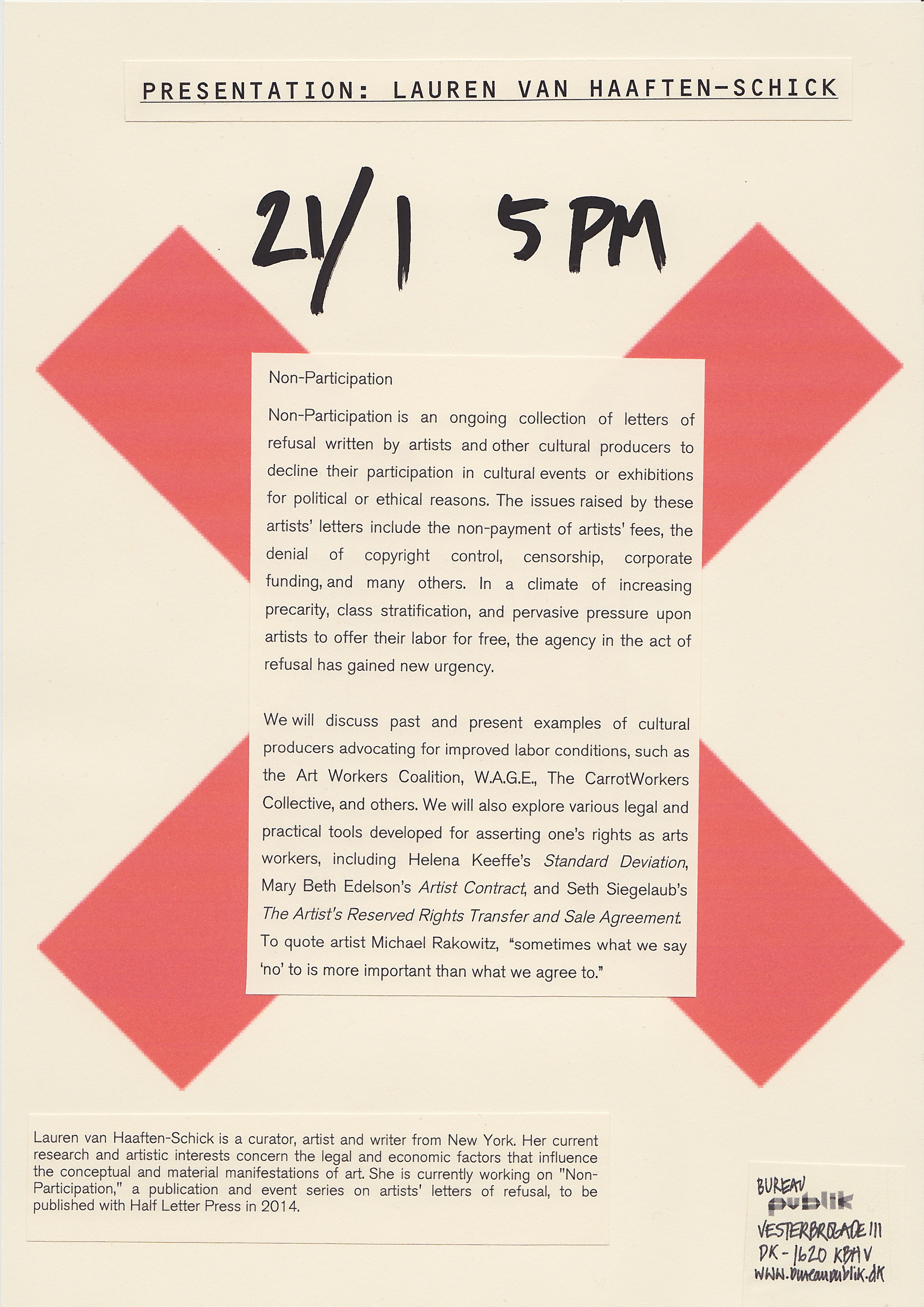Guest curated by Lauren van Haaften-Schick
Canceled: Alternative Manifestations & Productive Failures considers a selection of historic and contemporary canceled exhibitions, and the secondary projects that artists and curators created in response to, or in place of, these foreclosed efforts. Initially presented at the Center for Book Arts in New York, Canceled highlights the book form and printed matter as a crucial means of disseminating artworks, documentation and information on a wide scale, potentially in ways that are more historically accessible than the intended exhibition would have been.
The materials in Canceled also serve to document the process and politics of a cancellation, stand as an alternative manifestation of an exhibit, act as a critique of prohibitive forces, and may be an admission and exposition of an ultimately productive failure. In some cases, alternate venues and curators take a direct hand in ensuring other outlets for controversial artworks. At other times, artists will choose to opt out, subverting accepted institutional power structures. By utilizing non-traditional means of dissemination and exhibition, these artists and curators have found alternative routes through which the politics surrounding the presentation and creation of art become at least as relevant as the work itself.
Please contact lauren@laurenvhs.com to purchase an exhibition catalog.
Exhibitions and artists’ projects:
– Seth Siegelaub, publications, 1968
– Manifesta 6, 2006
– Hans Haacke, Solomon R. Guggenheim Museum, 1971
– Guerrilla Girls, Do women have to be naked to get into the Met. Museum?, the Public Art Fund, 1989
– Jill Magid, Article 12, commission for the AIVD, 2004–2008; Authority to Remove, Tate Modern, 2009
– The Aesthetics of Terror, curated by Manon Slome and Joshua Simon, The Chelsea Art Museum, 2008
– Imaginary Coordinates, curated by Rhoda Rosen, The Spertus Museum, 2008
– Robert Mapplethorpe: The Perfect Moment, The Corcoran Gallery of Art, 1989
– David Wojnarowicz, A Fire in My Belly, censored from the Smithsonian Institution, 2010
– Richard Serra, Tilted Arc, 1981–1989
– Christoph Büchel, Training Ground for Democracy, Mass MoCA, 2006
– Patrick Cariou, Yes Rasta, Celle Gallery; Richard Prince, Canal Zone, Gagosian Gallery, 2008
– Takis, removal of sculpture from the Museum of Modern Art, 1968; The Art Workers Coalition, 1969
– Temporary Services, Why the Exhibit Was Canceled, 2001
– Brendan Fowler, BARR tour, 2008
– Bas Jan Ader, In Search of the Miraculous, 1975
And others.
Associated publications, artworks, and documentation:
Bas Jan Ader, Greg Allen, the Art Workers Coalition, Wallace Berman, Christoph Büchel, Martha Buskirk, Patrick Cariou, Shu Lea Cheang, Dexter Sinister, Exit Art, Brendan Fowler, the Guerrilla Girls, Hans Haacke, David Horvitz, Douglas Huebler, Jonathan D. Katz, Jill Magid, P.P.O.W., Primary Information, Richard Prince, Seth Siegelaub, Richard Serra, Temporary Services, Lawrence Weiner, Werkplaats Typografie, Marion van Wijk and Dalstar, Amy Wilson, David Wojnarowicz, and many others.
Canceled: Alternative Manifestations and Productive Failures
The Center for Book Arts, New York, NY
April 12–June 30, 2012
Freedman Gallery, Center For the Arts
Albright College, Reading, PA
October 10–November 17, 2013
The Oresman Gallery
Smith College, Northampton, MA
February 5-28, 2014
“Canceled” was also shown as an exhibition archive for David Horvitz’s “How Can A Digital Be Gift?” at the Goethe Institut, New York, NY, October – December 2012.












